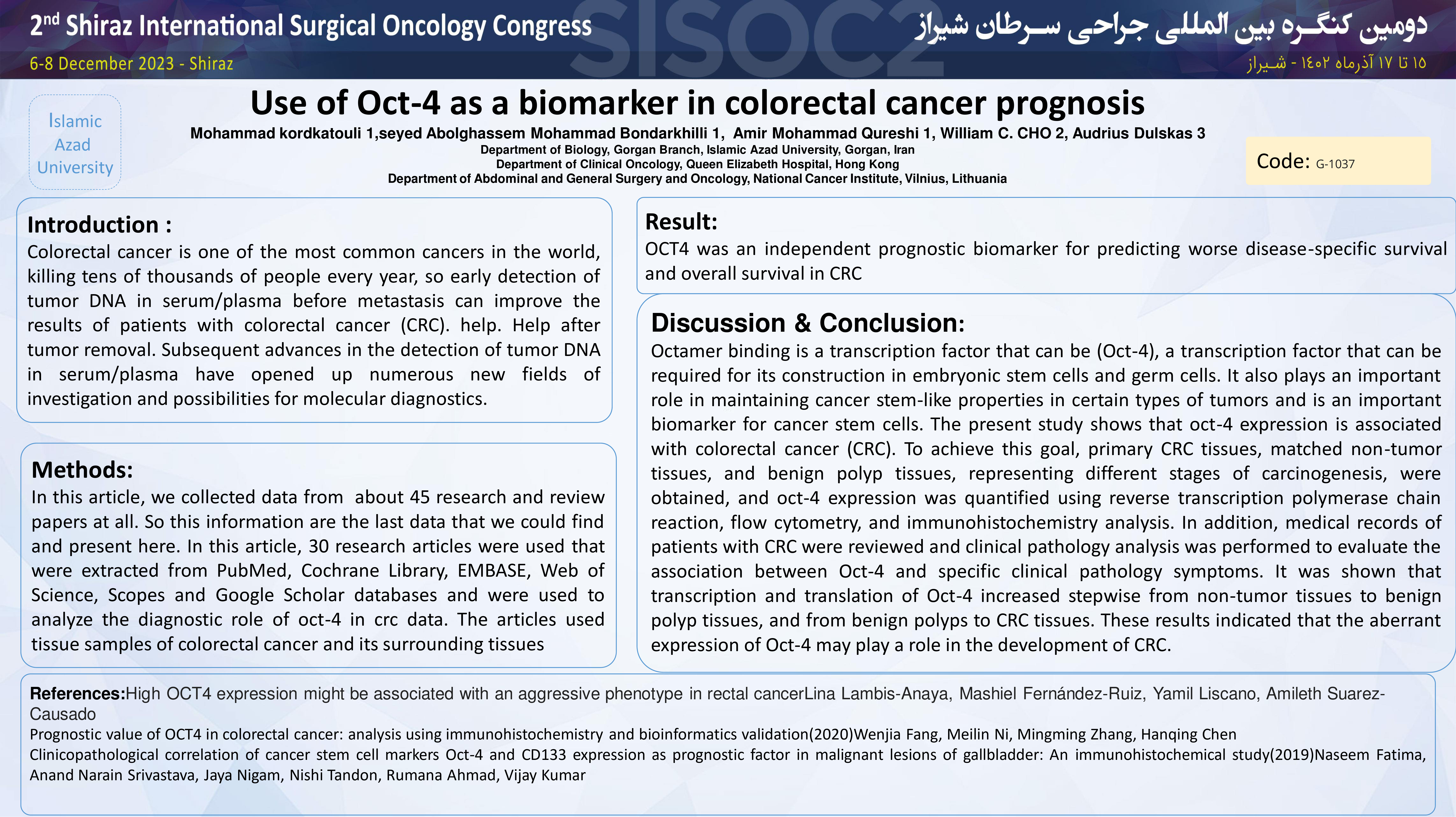Use of Oct-4 as a biomarker in colorectal cancer prognosis
Code: G-1037
Authors: Mohammad Kordkatouli ℗, Seyed Abolghassem Mohammad Bondarkhilli ©, Amir Mohammad Qureshi , William C. CHO, Audrius Dulskas
Schedule: Thursday 2023-12-07 10:30 on Unit Panel C
Download: Download Poster
Abstract:
Abstract
Introduction: Colorectal cancer is one of the most common cancers in the world, killing tens of thousands of people every year, so early detection of tumor DNA in serum/plasma before metastasis can improve the results of patients with colorectal cancer (CRC). help. Help after tumor removal. Subsequent advances in the detection of tumor DNA in serum/plasma have opened up numerous new fields of investigation and possibilities for molecular diagnostics. materials and methods: In this article, we collected data from about 45 research and review papers at all. So this information are the last data that we could find and present here. In this article, 30 research articles were used that were extracted from PubMed, Cochrane Library, EMBASE, Web of Science, Scopes and Google Scholar databases and were used to analyze the diagnostic role of oct-4 in crc data. The articles used tissue samples of colorectal cancer and its surrounding tissues Discussion: Octamer binding is a transcription factor that can be (Oct-4), a transcription factor that can be required for its construction in embryonic stem cells and germ cells. It also plays an important role in maintaining cancer stem-like properties in certain types of tumors and is an important biomarker for cancer stem cells. The present study shows that oct-4 expression is associated with colorectal cancer (CRC). To achieve this goal, primary CRC tissues, matched non-tumor tissues, and benign polyp tissues, representing different stages of carcinogenesis, were obtained, and oct-4 expression was quantified using reverse transcription polymerase chain reaction, flow cytometry, and immunohistochemistry analysis. In addition, medical records of patients with CRC were reviewed and clinical pathology analysis was performed to evaluate the association between Oct-4 and specific clinical pathology symptoms. It was shown that transcription and translation of Oct-4 increased stepwise from non-tumor tissues to benign polyp tissues, and from benign polyps to CRC tissues. These results indicated that the aberrant expression of Oct-4 may play a role in the development of CRC.
Keywords
Biomarker, Oct-4, colorectal cancer, prognosis
Comments (0)
Post a comment
Post comment is closed by admin.
